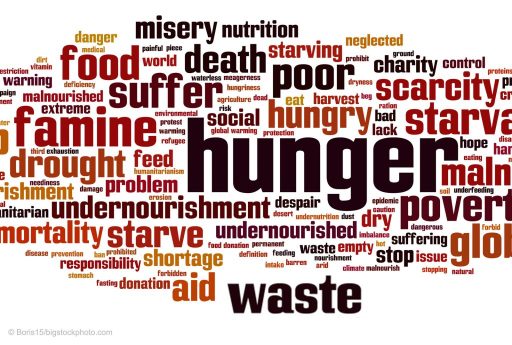
One consequence of many things happening in the world today is that we have worldwide food shortages. In the United States, we complain about the price of food and how much it has risen. Yet, in places like Somalia, there is simply no food available.
COVID-19, the war in Ukraine, rapid population growth, climate change, drought, and escalating conflict have combined to cause starvation and poverty in many places in the world. The United Nations reports that 349 million people are experiencing acute food insecurity, up from 287 million in 2021. In Somalia, the number of people facing “catastrophic” acute food shortages has risen from 5.6 million in December 2022 to a predicted high of 8.3 million by June 2023.
All of this pain and suffering is not something caused by God. The refusal of humans to follow God’s instructions, along with human greed and selfishness, are driving the chaos and pain. However, it does afford opportunities for Christians to provide the food and water that people need. No atheist group is going to address this crisis. We have to be reminded of Christ’s statement in Matthew 25:31 -40 that providing the needy with food, water, clothing, and support is what He expects of His followers. Worldwide food shortages may offer an excellent opportunity to show people everywhere what authentic Christianity means.
— John N. Clayton © 2023






